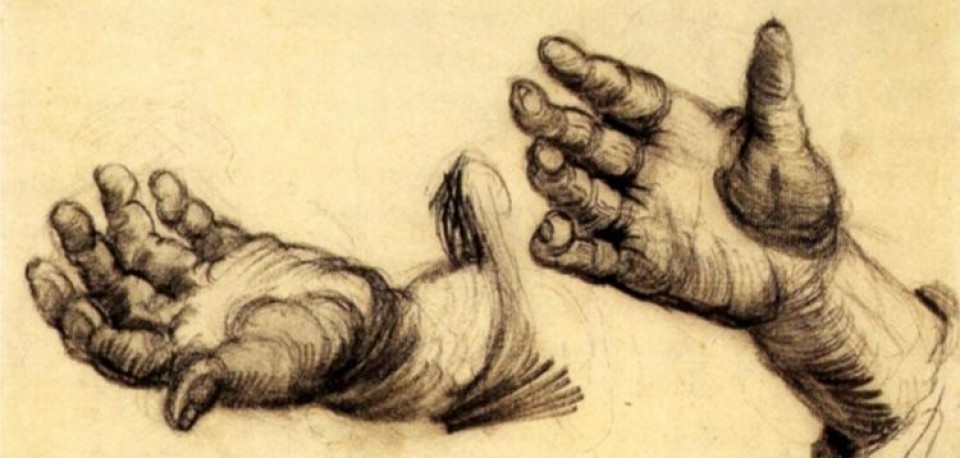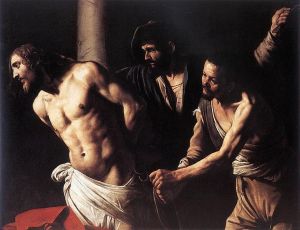The arts are very near and dear to my heart. I’ve spent the majority of my life pursuing and living a career as a (mildly to extremely) eccentric artist in the forms of professional dancer and dance teacher. One day, one of my students commented that she didn’t understand why anyone would take so many dance classes if they didn’t plan on actually becoming a dancer. My heart nearly dropped out of my chest. I briefly explained to her that the goal of dance class is not merely to make professional dancers–it is to make better human beings.
Here is a little bit on why I think doing a dance class, taking a tour at the art museum, listening to classical music, or any number of other artistic pursuits helps us become better human beings.
1) Art teaches us to love mystery:
What work of art have you witnessed in your life that you totally understood and absolutely nothing was shrouded or left to question? I hope none. Even the most obvious story ballets that I’ve witnessed leave me with questions (i.e. what the heck happened in Drosselmeyer’s life to make him such a creepy uncle?).
Most works of art are less obvious than a story ballet like the Nutcracker. I can listen to Modest Mussorgsky’s “Night on Bald Mountain” over and over and still not have a complete understanding to every note and nuance. It’s wonderful, because there are new depths to plummet and discover with each listen.
But why is it important that we love mystery? Because God is mystery and because each human being, created in His image, is mystery as well. We can never completely know a person and we can never completely know God. As a Byzantine Catholic, I believe even the saints in Heaven do not know everything about God. They are still plummeting the depths of His mystery even in their perfect communion with Him.
Many times, this mystery is what we love but also sometimes hate and deny about both God and man. While there are times that I love a God who is unfathomable, I also get frustrated when God does not give obvious answers to my questions or when he fails to answer them at all except with, “That’s not something you need to know.” I am ashamed to admit that I have put people in boxes and assumed that I knew everything of who they are. And I do all this because I am afraid of having anything unknown. Maybe it’s my pride. Maybe it’s an irrational need for safety. Who knows?
But the more I can appreciate some mystery on the stage or in a painting, the more I learn to appreciate and love–rather than fear–the mystery of others.
2) Art teaches us to appreciate nuance.
I love this definition of “nuance” from Merriam-Webster: “sensibility to, awareness of, or ability to express delicate shadings (as of meaning, feeling, or value).”
Art without nuance is facile at best, as is all theology and philosophy: Caravaggio’s paintings would be worthless without the nuance of his use of shadow and light. Martha Graham’s works would fail to be so powerful without her specific use of spinal articulations, contractions, and hand movements. Jane Austen’s characters would be two dimensional without her attentive description of the details of their actions, expressions, and conversations.
Nuance is also what makes Pope Francis so impossible to understand for many people. Catholics who miss the “delicate shadings” of their own theology and philosophy are confused when Pope Francis says, “It is not necessary to talk about these issues [abortion, contraception, and gay marriage] all the time.” Media unaware those same delicate shadings, such as a morning talk radio show to which I was listening, thought it was a radical “change of policy” (as if Catholic moral teaching equates with “policy”, another place where nuance makes a difference) when Pope Francis said, “Who am I to judge?” concerning people with homosexual feelings.
I don’t think you have to be involved with an art to appreciate and be aware of nuance in other areas of life, but I think the perpetual attention given to nuance throughout my dance, art, and music training helped me tremendously to recognize and understand the nuances of my spiritual beliefs.
3) Art gives us beauty.
This is perhaps the most important reason that we need art.
Beauty is without use. It does nothing practical for us. But it does fill our soul and move us when we most need moving.
In the words of Dostoevsky:
“Do you know that mankind can live without…science, without bread, and it only cannot live without beauty, for then there would be nothing at all to do in the world! The whole secret is here, the whole of history is here. Science itself would not stand for a minute without beauty.”
He also said in The Idiot that “beauty will save the world,” and Pope Francis repeated this quote in Lumen Fidei.
At some point, we have to learn to see God as we see beauty, not as merely some practical provider like a vending machine, but Someone who fills our souls without explanation or condition.
I find this especially relevant to how we see the Eucharist. The Eucharist is not practical. The Eucharist is without use, (even though we may have tried to use it as some sort of good luck talisman or vitamin). The Eucharist exists–like beauty–to fill our souls and to move us when we most need moving, first and foremost.


Part two is not coming along as quickly or as easily as I originally planned. Rather than throw out something quickly that is haphazard and uninteresting, I’d prefer to take some more time and give you something that is a little closer to being worth your time than what I’ve done so far!